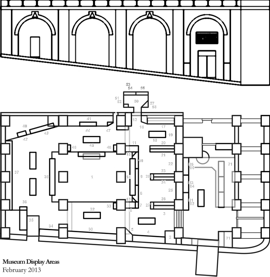Category:Japan
2013 is the Four-Hundredth Anniversary of official relations between Britain and Japan, which commenced in 1613.
Japanese influence in the Museum
There are several items around the museum with notable Japanese influence; a number of Japanese locomotives and cars such as Mercedes-Benz have been reproduced as models by British toy companies, and we have a large collection of Japanese traditional dolls.
Japan and England
Britain’s historic trade relations with Japan first developed in 1613, under the reigns of James I Stuart (James VI of Scotland) and the reciprocated affability of the Tokugawa Shogunate. At this time, the British Empire had not reached its most powerful and was only just beginning to be established through minor exploration into East Asia, India and the Americas. Trade with Japan was therefore minimal in the years that followed, with only four cargo ships travelling between Japan and England over the course of a decade. Yet diplomatic relations were maintained and most distinguished by Japan’s diplomatic gift of traditional Japanese armour to James I.
It was only in 1854 that trade relations began to expand greatly; the British Empire had reached its historic heights of naval domination and trade monopoly and, despite the loss of colonies in North America, trade with Japan was made more efficient through upheld diplomatic ties via the United States of America. The first Anglo-Japanese Friendship Treaty was signed in 1854 by Admiral Sir James Stirling and members of the Tokugawa Shogunate in Bakufu. By 1859 Japanese envoys were posted to Britain, swiftly followed by Queen Victoria’s own gift of armour in 1860. Trade between Japan and England flourished in the years that followed, although greatly disrupted by both the First and Second World Wars. The rapid growth of Britain’s Japanese community has served to further concretise relations.
Japan and Brighton
Brighton’s own Japanese community has been greatly expanded; situated close to London and advantaged by its geographic position on the coast, Brighton has been a highly desirable place to visit, to study and to live. Brighton’s Japanese community has greatly benefitted from the establishment of two local Universities (Brighton & Sussex), by both English and Japanese language courses, by Japanese societies and clubs, restaurants, and by hosting regular cultural festivities. The Anglo-Japan Services, established in the 1980s, was founded with the intention of accommodating Brighton’s increasing numbers of non-English-speaking Japanese. The significance of Brighton, specifically, in British-Japanese diplomatic, trading and cultural relations is highly significant. While relations between England and Japan are annually commemorated in Britain with the Japanese Festival, the celebration of 400 years of British-Japanese relations (1613 – 2013) is commemorated by the Brighton-Japan Festival ‘Japan 400’.
Further reading
- Derek Massarella, “Ticklish Points” The East India Company and Japan, 1621, Royal Asiatic Society, Third Series, Vol. 11, No.1,(2001)
- Derek Massarella, James I and Japan, Monumenta Nipponica, Vol. 38, No. 4, (1983)
- Fiona Johnson, Turning Japanese, Insight, Brighton & Hove online guide (nigelberman.co.uk) - website feature (2003)
- Allan Scott Pate, Antique Japanese Dolls (antiquejapanesedolls.com) - website (2013)
Subcategories
This category has only the following subcategory.
J
- Japanese Dolls (display) (6 P, 11 F)
Pages in category ‘Japan’
The following 24 pages are in this category, out of 24 total.
H
M
Media in category ‘Japan’
The following 14 files are in this category, out of 14 total.
- A6M5 Zero-Sen, Dinky Toys 739 (DinkyCat13 1977).jpg 1,600 × 1,272; 252 KB
- Baby Ichimatsu Dolls (Japanese Dolls).jpg 2,200 × 1,469; 1.01 MB
- Dancing Nishi Dolls (Japanese Dolls).jpg 800 × 1,200; 561 KB
- Dancing Nishi Dolls, faces (Japanese Dolls).jpg 2,000 × 1,336; 918 KB
- Japanese Dolls cabinet, 2013.jpg 821 × 616; 292 KB
- Japanese Dolls detail.jpg 800 × 798; 442 KB
- Japanese Dolls display, 2013 redisplay.jpg 1,024 × 1,050; 311 KB
- Large Geisha Doll (Japanese Dolls).jpg 1,200 × 1,800; 1,024 KB
- Man pulling woman passenger in handcart (Japanese Dolls).jpg 1,200 × 801; 243 KB
- Nishi Dolls man and woman (Japanese Dolls).jpg 1,200 × 801; 206 KB
- Nishi Geisha Doll upper (Japanese Dolls).jpg 2,000 × 1,336; 1.11 MB
- Samurai Dolls (Japanese Dolls).jpg 1,800 × 1,202; 1.05 MB
- Small Space Launchers, Card No 40 (RaceIntoSpace 1971).jpg 1,181 × 2,200; 769 KB
- Warrior Doll (Japanese Dolls).jpg 1,600 × 1,598; 968 KB
















